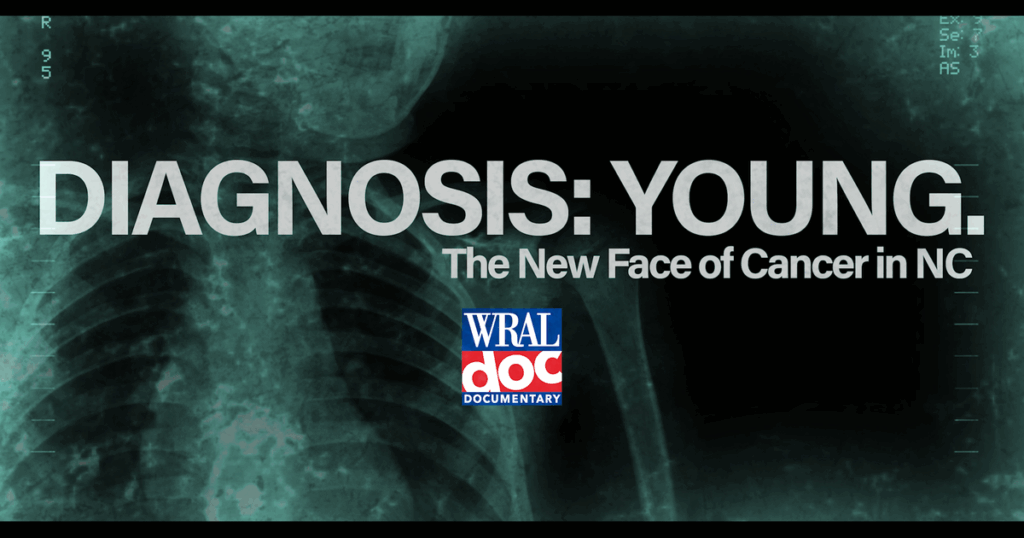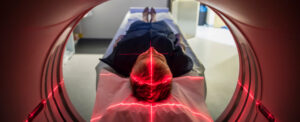
Cancer, a disease characterized by the uncontrolled division of abnormal cells, is increasingly affecting younger populations. According to Dr. Nicholas DeVito, an oncologist at Duke Cancer Institute, cancer is “a random process that can happen to any of us.” By 2025, the United States is expected to see over 2 million new cancer cases, with 618,120 deaths attributed to the disease. In North Carolina, cancer is the second leading cause of death, following heart disease.
Between 2010 and 2019, early-onset cases of 14 different cancers, including colon, breast, uterine, and testicular cancers, have risen among younger age groups. This alarming trend has sparked concern among medical professionals and researchers, who are investigating potential links between lifestyle factors and cancer diagnoses.
Increasing Cancer Diagnoses in Younger Adults
Dr. Cary Anders, associate director for clinical research at Duke Cancer Institute, notes a significant increase in younger patients with gastrointestinal malignancies over the past five to six years. “We do see that over the last 30 years, the numbers across the country have been increasing,” says Dr. Ashwin Somasundaram, an oncologist at UNC School of Medicine. “A lot of us across the country have been looking at why this is happening and what we can do and exactly what the differences are.”
Statistics reveal that one in five colorectal cancer diagnoses now occur in individuals under 55, and more women under 40 are being diagnosed with endometrial or uterine cancer. Dr. DeVito has observed cases of these cancers even in patients in their twenties over the past few years.
“In the past two to three years, I really started taking notice of it. I’ve seen folks with these types of cancers even in their twenties.” — Dr. Nicholas DeVito
Environmental and Lifestyle Influences
Dr. Anders, who specializes in breast cancers, emphasizes the need to understand the molecular, environmental, and genetic reasons behind this trend. Researchers are examining factors such as diet, environmental influences, and lifestyle habits to determine what changes in the U.S. population might be contributing to the rise in cancer cases.
Dr. Somasundaram points out, “We look for the simplest explanation. We ask ourselves what’s really changed over the last 30 to 40 years as a population in the United States, and what, based on the science that we have, could explain what we’re seeing.” He and others believe that environmental factors, including air quality, diet, and lifestyle choices, play a significant role.
“You have to believe that there’s an environmental influence, whether or not it’s the air we breathe, the food we eat, the activity that we’re engaged in every day, the amount of alcohol that’s consumed, smoking. There’s so many different components that lead into this.” — Dr. Cary Anders
One clear trend is the obesity epidemic, which is linked to diet and physical activity. Dr. Angela Alvarez Secord explains how higher body weight and hormone surges can trigger uterine cancer. “Being a higher weight impacts your body in various ways. And one of the ways it can impact your body is by this increase in hormone production,” she says.
The Role of Ultra-Processed Foods
Ultra-processed foods, which make up about 75% of the American diet, are under scrutiny. These foods, often manufactured rather than prepared in kitchens, are linked to increased cancer risks. A study in Norway found that a 10% increase in ultra-processed food consumption could raise cancer risk by 13%, while a Chinese study linked these foods to a nearly 30% higher chance of colon cancer in men.
“We’ve gone from an environment where you used to eat food that came out of your own garden to an environment where now everything’s bought at the grocery store.” — Dr. Angela Alvarez Secord
While associations between diet and cancer are not direct causations, further investigation is warranted. Dr. Anders adds, “I can’t say that we have the answer with 100% certainty today, but there certainly are efforts ongoing to help us understand what might be leading to this increased incidence, so then we could change behavior to decrease the incidences in the future.”
Research and Hope for the Future
Groundbreaking research is underway in North Carolina to understand why younger individuals are being diagnosed with cancer. The YOGI (Young Onset Gastrointestinal Cancer Group) at Duke Health, consisting of various specialists, is analyzing data to identify causes and develop new therapies.
Dr. DeVito reassures younger patients that they are not alone and highlights the potential of new treatments. Dr. Secord’s research at the Endometrial Cancer Consortium aims to better understand and treat endometrial cancer, offering hope for individualized therapies.
“At this point, we’re 23 sites and growing and almost 4,000 patients. And what it’s really helping us do is better understand why these cancers are developing and how we can target treatments for them.” — Dr. Angela Alvarez Secord
As research continues, the goal is not only to improve treatments but also to prevent cancer entirely. Dr. Anders concludes, “There’s some really innovative research … particularly the role of the environment and how our environment is interfacing with our genes that may or may not be leading to young adult onset cancer. I think that will really be the lock and the key. Ultimately, the goal is prevention.”
The documentary “Diagnosis: Young. The New Face of Cancer in NC” by WRAL explores this alarming trend, following young North Carolinians who never expected a cancer diagnosis so early in life. It is available on WRAL’s streaming platforms and YouTube channel, providing a deeper look into the personal stories and the big question: Why is this happening?







